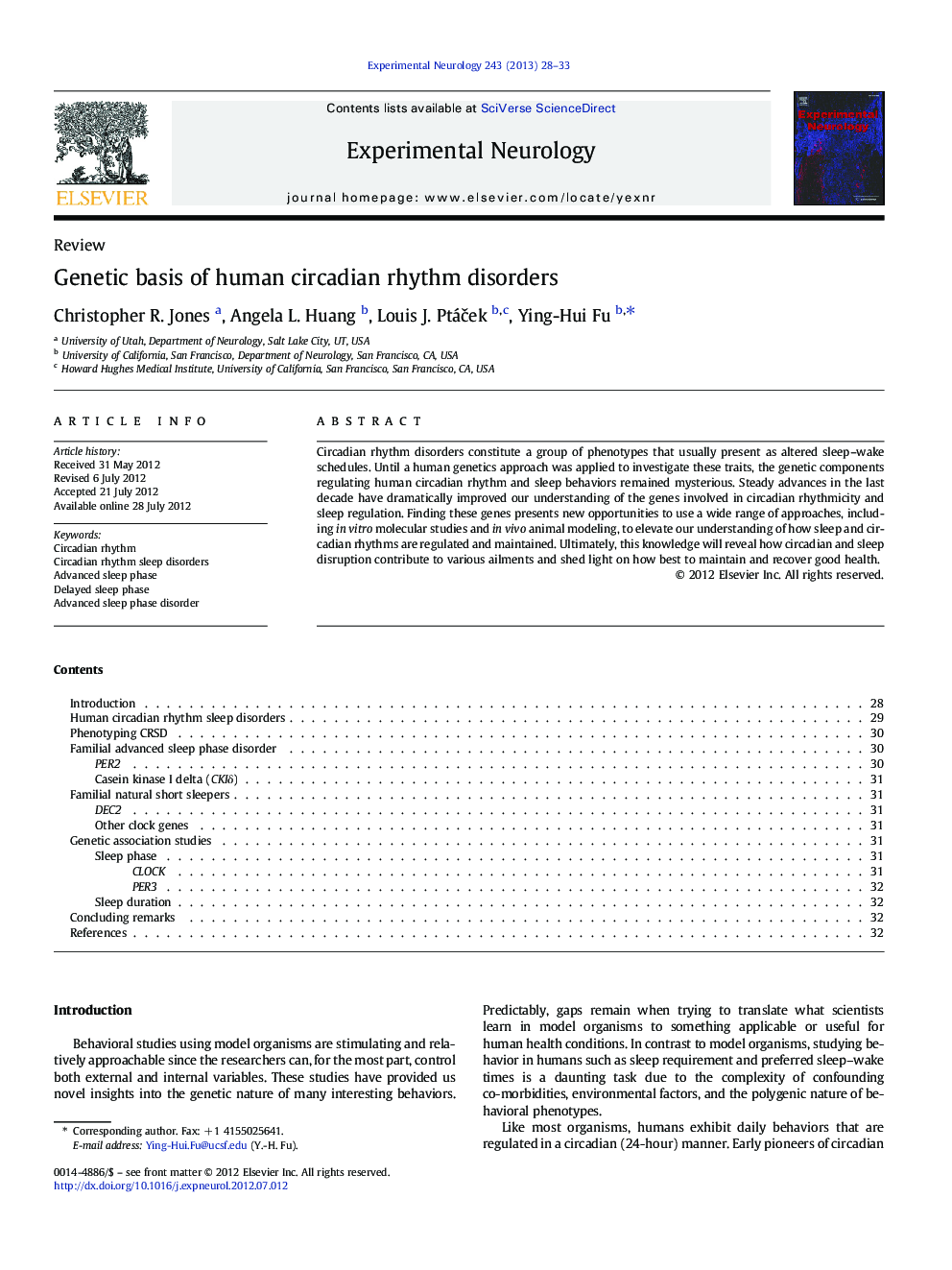| Article ID | Journal | Published Year | Pages | File Type |
|---|---|---|---|---|
| 3055618 | Experimental Neurology | 2013 | 6 Pages |
Circadian rhythm disorders constitute a group of phenotypes that usually present as altered sleep–wake schedules. Until a human genetics approach was applied to investigate these traits, the genetic components regulating human circadian rhythm and sleep behaviors remained mysterious. Steady advances in the last decade have dramatically improved our understanding of the genes involved in circadian rhythmicity and sleep regulation. Finding these genes presents new opportunities to use a wide range of approaches, including in vitro molecular studies and in vivo animal modeling, to elevate our understanding of how sleep and circadian rhythms are regulated and maintained. Ultimately, this knowledge will reveal how circadian and sleep disruption contribute to various ailments and shed light on how best to maintain and recover good health.
